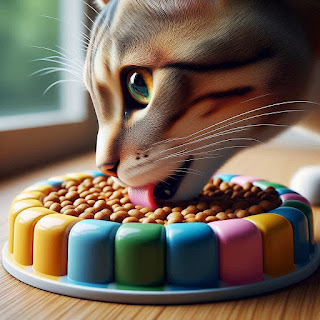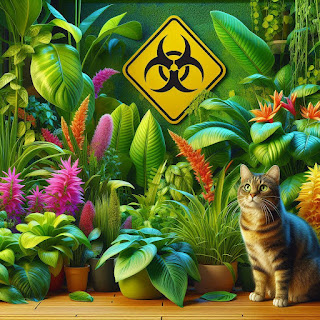Why is My Cat Throwing Up? Understanding the Causes and Solutions
Cats are known for their grooming habits and adventurous tastes, but if your feline friend is throwing up frequently, it’s natural to be concerned. While an occasional vomit might not be a big deal, chronic or repeated vomiting can indicate something more serious. In this article, we’ll explore the main reasons why cats throw up, when it’s time to call the vet, and some helpful tips to keep your cat happy and healthy.
1. Hairballs: A Common Culprit
One of the most frequent reasons cats throw up is because of hairballs. Cats groom themselves by licking their fur, which can lead to the ingestion of loose hairs. Sometimes, these hairs form into hairballs that need to be expelled. If you hear your cat hacking or retching, they might be trying to bring up a hairball. Brushing your cat regularly can help reduce hairball formation, especially if your cat has long fur.
2. Dietary Sensitivities and Changes
If your cat is experiencing dietary changes or sensitivities, vomiting could be a response. Cats have delicate stomachs, and switching to a new food too quickly can cause digestive issues. Also, certain ingredients might not sit well with your cat, leading to an upset stomach. To prevent this, introduce new foods gradually over a week, mixing them with their usual food. Avoid giving your cat table scraps, as human food can often be too rich for their system.
3. Eating Too Quickly
If your cat eats too fast, they might vomit soon after meals. This occurs because the stomach can’t process large amounts of food at once. Try feeding smaller portions throughout the day or using a slow feeder bowl. These methods help control their eating pace, giving their stomach a better chance to handle the food.
4. Underlying Health Conditions
Frequent vomiting can sometimes be a sign of underlying health issues, such as:
- Gastrointestinal Blockages: Cats sometimes swallow objects like strings or toys that can obstruct their digestive tract.
- Infections or Parasites: Stomach infections or parasites can irritate the digestive system, causing vomiting.
- Chronic Conditions: Diseases like kidney disease or hyperthyroidism are more common in older cats and can cause vomiting as a symptom.
If your cat shows other symptoms like lethargy, diarrhea, or a loss of appetite, it's essential to consult your veterinarian for a proper diagnosis and treatment.
5. Toxic Plants and Substances
Cats love to nibble on plants, but not all plants are safe for them. Plants like lilies, azaleas, and poinsettias are toxic to cats and can cause vomiting. Be sure to check that any plants in your home are non-toxic, and store chemicals out of reach to prevent accidental ingestion.
6. Stress and Environmental Changes
Stress can also affect your cat’s digestive system. Changes like a new pet, moving to a new home, or even a new routine can cause anxiety. If your cat is stressed, they might start vomiting or show other signs of discomfort. Provide a calm environment with hiding spots and use calming sprays or diffusers if necessary.
Keeping Your Cat Happy and Vomit-Free
To keep your cat healthy, make sure to provide a balanced diet, regular grooming, and a stable environment. Watch for any changes in their behavior, especially if vomiting becomes frequent. Sometimes, simple changes in their routine, food, or environment can make a big difference. Regular vet check-ups are essential to catch any health issues early, ensuring a long, happy life for your furry friend.
By understanding these common causes, you’ll be better prepared to address any issues and provide the best care for your cat. After all, a healthy cat is a happy cat, and we all want our feline companions to enjoy life without the tummy troubles!


.png)







